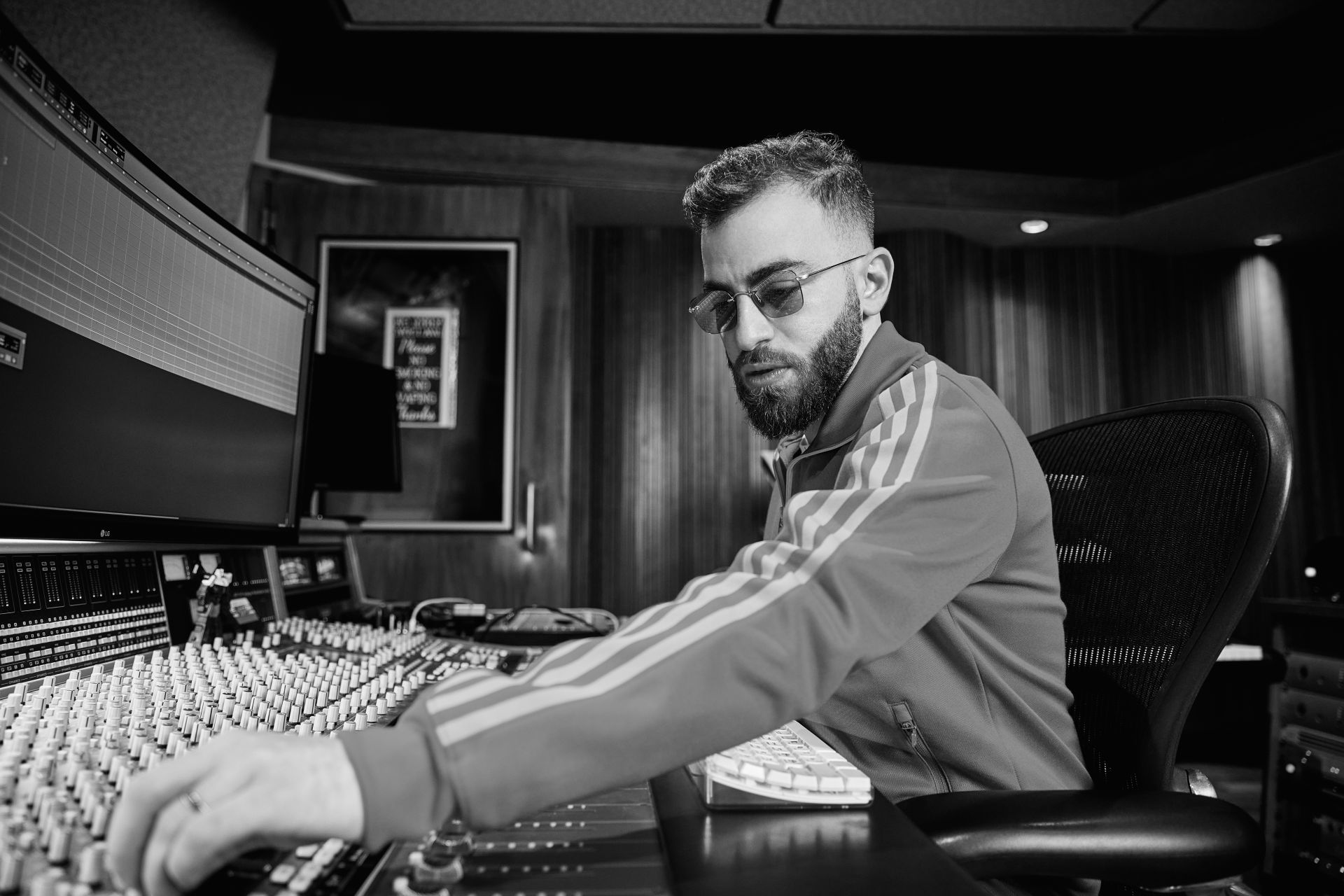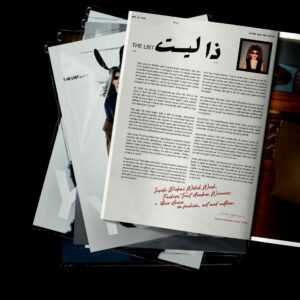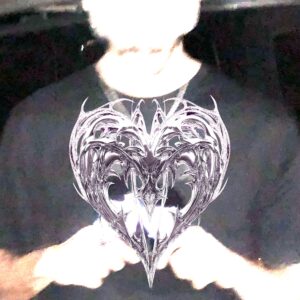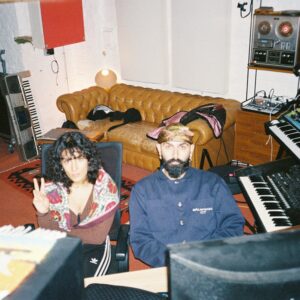There is a quiet and calculated rebellion in the way Sleiman Damien (Instagram) talks about pop. Not pop as a genre, but pop as a practice—something that can live anywhere from a sweaty Egyptian hip-hop banger to a melancholic, synth-drenched ballad in Arabic. “Pop is just what people like,” he says, bluntly. “It’s not about formula. It’s about doing the song justice.”
A name buried in credits, a ghostwriter of soundscapes, a silent force behind the evolving lexicon of Arabic pop— Sleiman Damien has long been one of the region’s most influential yet understated producers. A producer behind both chart-toppers and cult favourites, his role was often invisible, even as his sonic DNA ran through hundreds of millions of streams.
Now, that’s starting to change.

After a career built behind the boards, he’s beginning to take steps into the foreground—claiming his place not just as a producer, but as an artist in his own right. “It gave me anxiety,” he admits of his first official artist credit on a track with Nai Barghouti. “It’s the first time I’ve presented myself directly to the audience—not just through someone else.”
From Beirut bedrooms to Dubai studios, Damien’s rise is the kind of career arc people romanticize—only he didn’t plan any of it. It all began with a cracked copy of FL Studio and a string of failed attempts at being in bands that led him to making beats in his bedroom, which later evolved into professional work. “I tried to sing, I tried to play guitar. I sucked at both,” he laughs. “So I ended up doing what I could alone.”
His breakout came early, through an arrangement for Carole Samaha’s “Sahranine,” a hybrid track that blended Arabic pop with EDM. At the time, it wasn’t framed as experimental. This was well before terms like fusion and genre-bending were thrown around so liberally. “I didn’t really have much knowledge in Arabic pop. It wasn’t a conscious decision to create a hybrid sound. I was just doing what I knew how to do,” he says.

The song’s success locked him into that sound for a time, as more artists approached him looking for similar arrangements. For a year, he obliged. But then he started evolving, resisting the creative trap, learning more about Arabic music theory and incorporating those elements gradually into his work.
Today, he bristles at reductive labels like “fusion.” “I wouldn’t define what I do now as a hybrid. It doesn’t try to be anything—it just is.”
That philosophy extends to his approach in the studio. He avoids categorizing music strictly by genre, focusing instead on making each track as compelling as possible. “My job is to do the song justice. That’s the only rule.”
To him, pop is a container—not a genre but a scope: whatever resonates with the most people.
For Sleiman Damien, staying honest to the artist—and to the culture—is key. “When you work with someone like Haifa Wehbe or George Wassouf, you’re not there to erase who they are,” he says. “You’re there to evolve it, to introduce something fresh while respecting where they come from.”
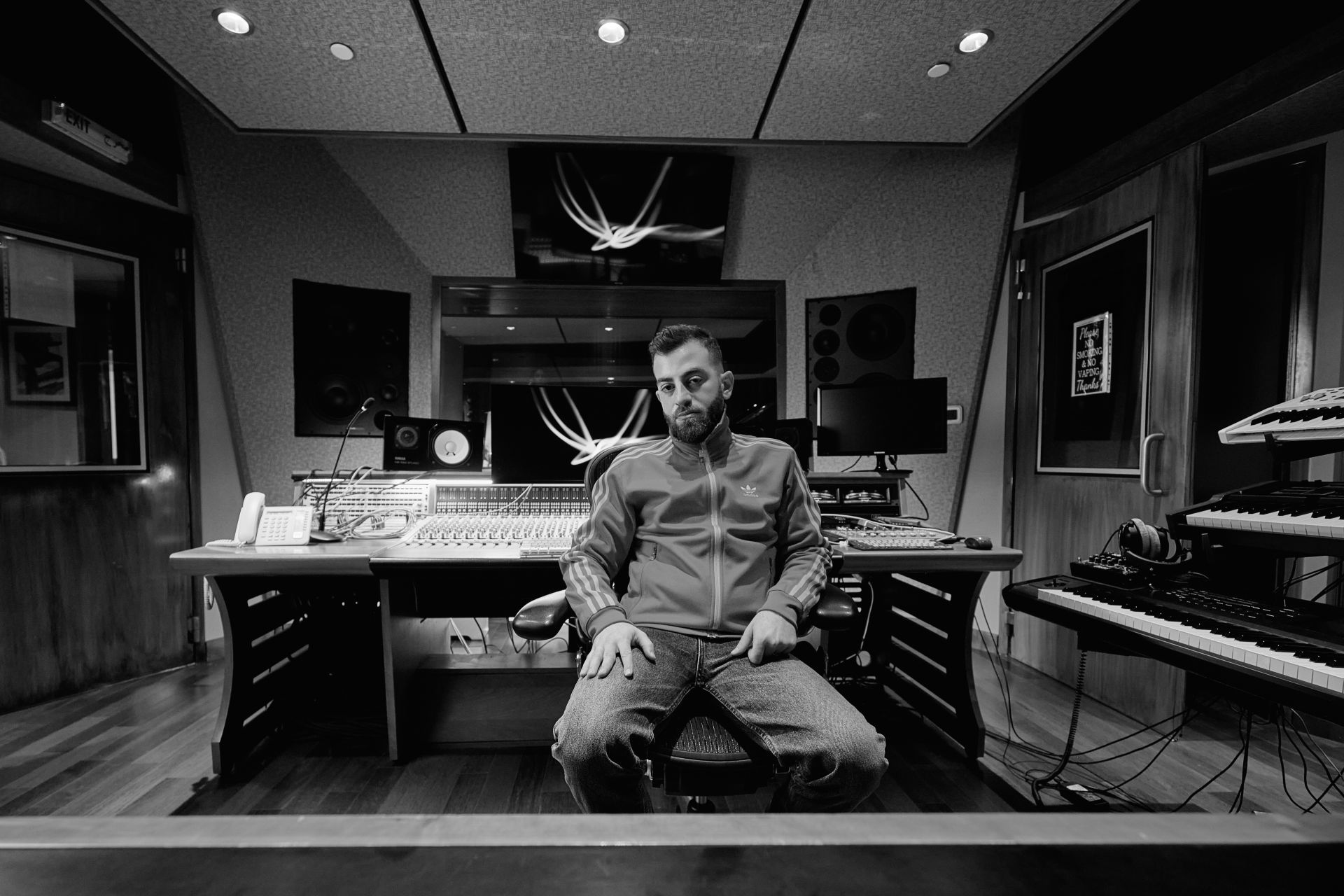
What emerges from that fluidity is not confusion, but coherence. “It’s not a push and pull. It’s synergy. I introduce my ideas while respecting the artist’s history and audience.”
You’ve heard his fingerprints across some of the Arab world’s most iconic voices but good luck trying to pin down a signature “Sleiman sound.” Even he can’t do it. “I change my process every time. I work differently with each artist. But somehow, people still know it’s me.”
There may be no singular sound—but there is a sensibility. A focus on groove, a mastery of arrangement, an ear for tension and release. “The hardest thing to do is make people want to dance,” he says. “Not just move, but feel it viscerally. That takes hours of work.”
Despite the variability, listeners often recognize his work. “People tell me they can identify my sound on the radio, but I’ve never really understood how.” That mysterious signature, that sonic thumbprint he never designed, has followed him from project to project.
When it comes to timelessness, Sleiman Damien believes we’re too close to the moment to recognize it. “In the 2000s, people mocked pop music for being plastic. Now we’re nostalgic for it. We just can’t predict what we’ll look back on with affection.” What has changed, however, is the volume of content. “We’re constantly bombarded. That makes music feel more fleeting, even if it’s not. It just hasn’t had space to linger.”
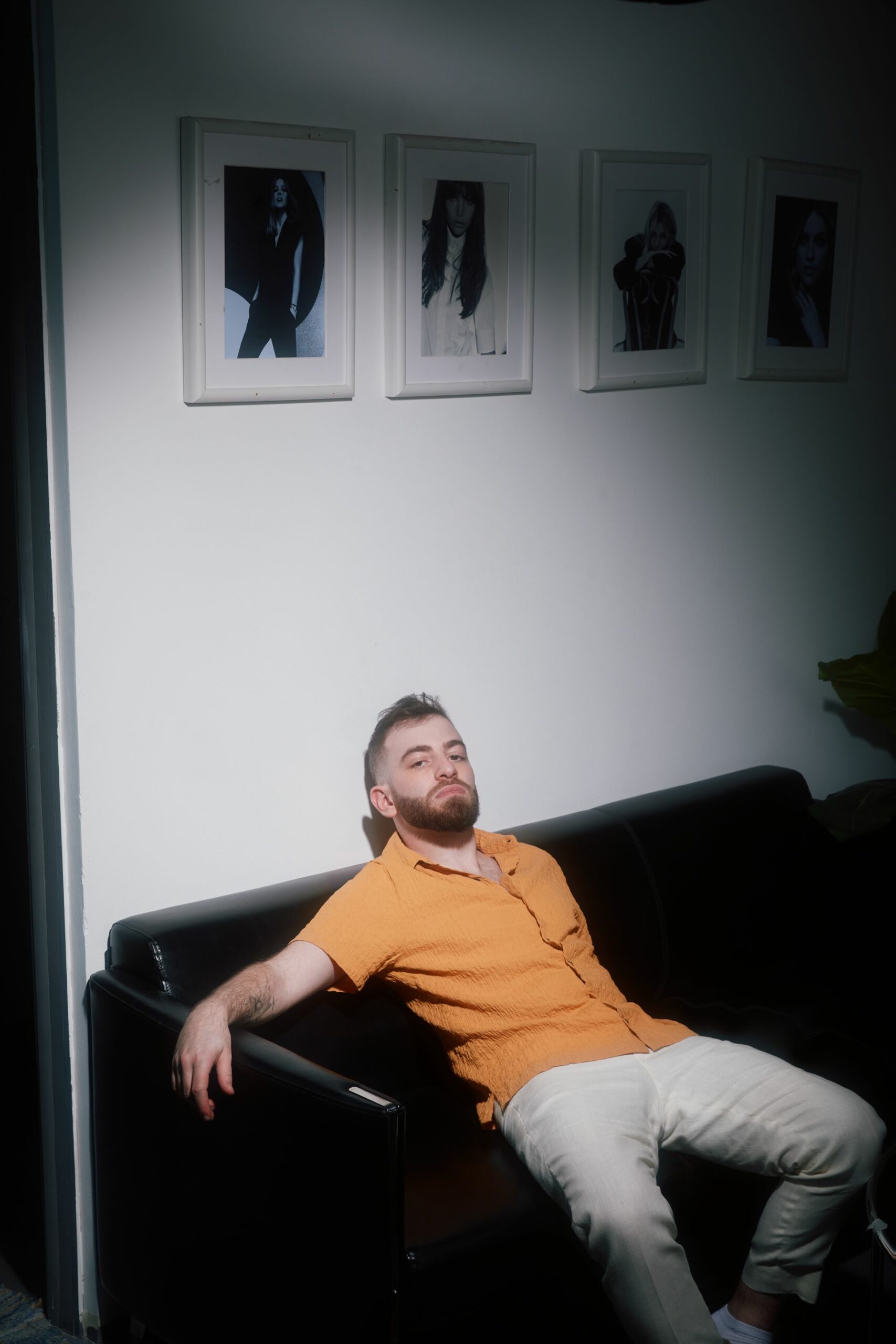
Streaming, which once promised democratization, has become a structural paradox. “It used to be that streaming democratized music. Now artists can fall into the trap of catering to algorithms instead of listeners. It’s changed how people create.” Still, he sees value in keeping an open ear. “A few years ago, I was more judgmental. Now I try not to dismiss something immediately. A song that seems uninteresting can turn out to be deeply compelling.”
This ethos of openness is particularly relevant in his collaborations with emerging artists. “You get to experiment more. And if it works, you’re part of something new. In Lebanon, I used to produce for indie artists for free. I didn’t even ask for royalties because I was doing well with commercial projects. In Dubai, it’s harder financially, but collaborations make it more feasible.”
One such project—his collaboration with Nai Barghouti—marked his first time being credited as an artist. The decision was strategic, but also personal. “The vision was mine too. I wanted to be part of it in a more official way.” Still, there were challenges. Nai had an established fanbase, and their track diverged from her usual style. “We had to recalibrate expectations,” he says. But the experiment validated the creative risk.

Sleiman Damien also speaks candidly about the marginalization of producers in Arab music. “We’re not beatmakers. We’re co-authors. But in this region, we’re still largely invisible.” This invisibility extends to entire formats. “Labels here aren’t interested in instrumental albums. But globally, instrumental music is thriving.”
That refusal to vanish into the background is what has carved out Damien’s legacy. “The reason people know my name is because I didn’t disappear. I let my fingerprint exist—even if I can’t always explain how it formed.”
He isn’t planning to sing anytime soon—“I’m an awful singer,” he laughs—but he is planning more collaborations and more deliberate authorship. He’s no longer just composing music for others but terms on which he’s heard.
His approach is rooted in intuition, shaped by years of listening, producing, and adjusting. “The more I make music, the less I believe in rules,” he says. “If it doesn’t feel good, I don’t care how smart it is.”

In an industry still tethered to formulas, Sleiman Damien is making space for feeling—for unpolished intuition, for risk, for resonance. Not chasing the moment, but shaping something that might last beyond it.
For more stories like this interview with Sleiman Damien, stay across our music pages and our Instagram.
